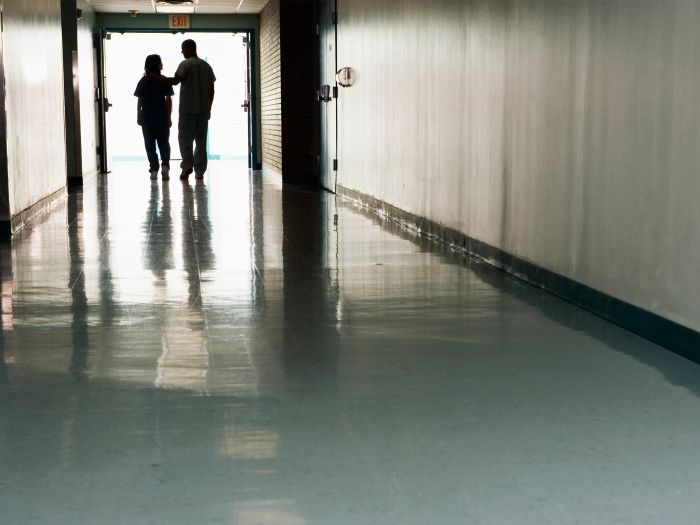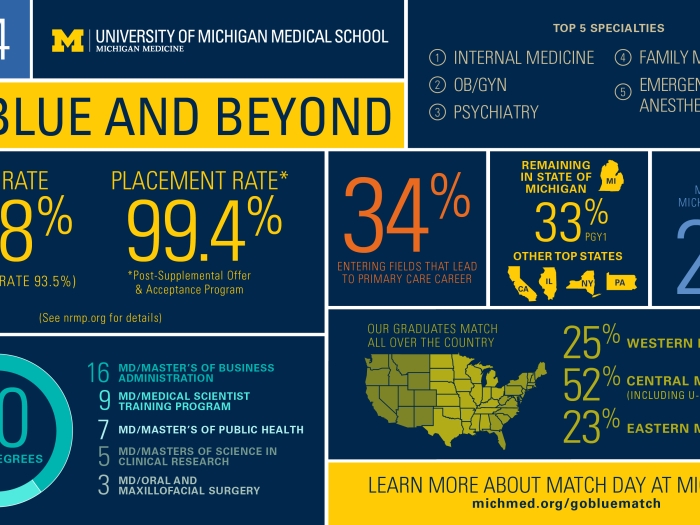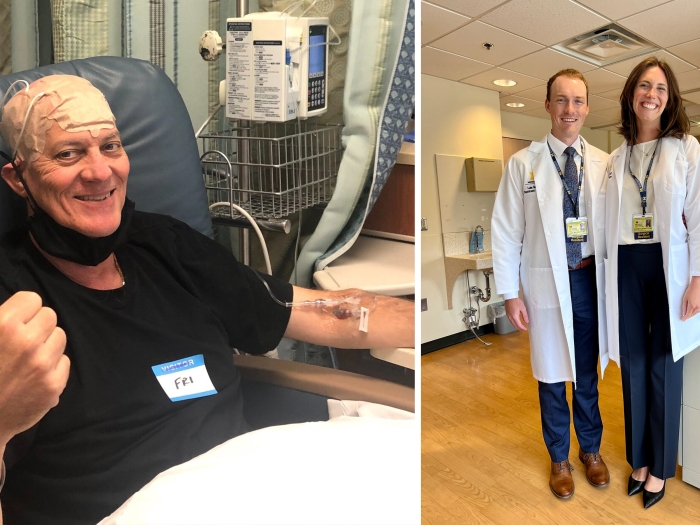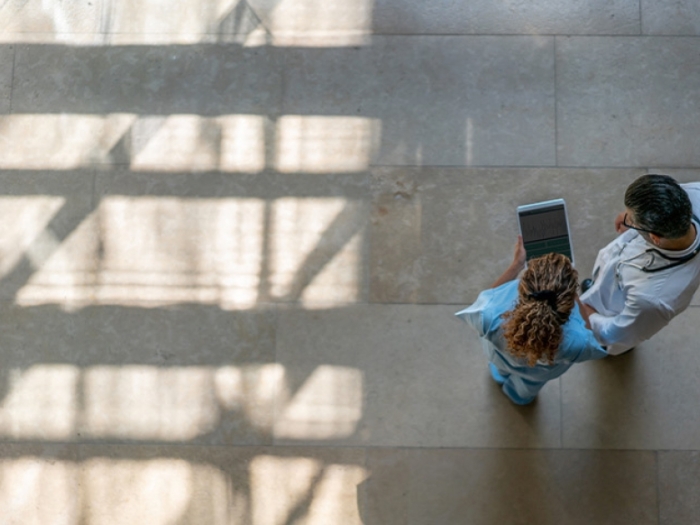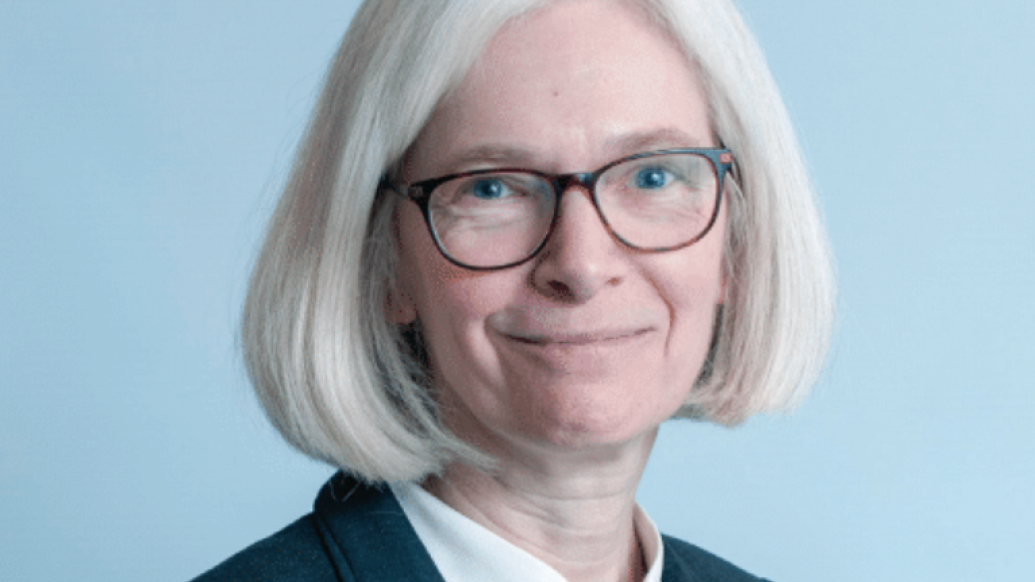
As the new executive vice dean for academic affairs, Debra Weinstein, M.D., has the big job of preparing Michigan Medicine learners to be leaders in the world of medicine. Here, she talks with us about her vision for medical education, the biggest lessons of the pandemic, and the surprising career she might have chosen if she hadn't gone into medicine.
How has medical education changed since you were in medical school?
In some ways it has changed a lot, and in other ways not nearly enough. There is certainly more diversity among medical students and residents, but still not as much as there should be. There is more attention to maintaining caregiver well-being (including work hours limits and facilitated access to counseling), but more needs to be done in this realm, including destigmatizing mental health care and getting help in general. There is greater emphasis on team-based care, but some old hierarchical habits remain. Medical education has undergone important changes in becoming curriculum-based and competency-based, but hasn't moved to the next logical extension: time-variable training. So, there is still much to be done!
What have been the biggest lessons of the pandemic for you?
Ah, there have been many …
Ingenuity, flexibility, and teamwork are essential in a crisis.
Caregivers are brave, dedicated, and often selfless.
Misinformation is dangerous on a very large scale.
Important connections aren't dependent on physical proximity.
People are resilient.
What do you think your biggest challenge will be in this role?
Balancing routine "operational" issues, urgent matters, and longer-term goals and strategy is always challenging and particularly so given the span of responsibilities in this role. It will be important for me to be very efficient and find ways to limit time in operational meetings and in the quicksand of email. Along these lines, I've already found that I have to decline or delay invitations to meet with individuals or groups – which I really enjoy doing – and I always find it very hard to say, "No."
If you could change one thing about the culture of medical school in general, what would it be?
A focus on learning and growth, rather than on performance.
How can we encourage students to specialize in areas with the greatest shortages, such as psychiatry?
At the national level, addressing workload and compensation would help. Locally, providing exposure to faculty role models and community-based physicians is important. Elective opportunities outside of Ann Arbor might also be valuable in providing exposure to a broader variety of practice settings and career emphases. Unfortunately, there isn't enough time in medical school to fully explore all specialties, and mentoring is important.
Tell us about your work with "Reimagining Residency." What are some medical education innovations you're interested in?
"Reimagining Residency" is the name of a large grants program focused on graduate medical education (GME) and initiated by the American Medical Association (AMA) as part of its "Change Med Ed" initiative. While at Mass General Brigham, I was fortunate to submit a successful proposal, titled "Promotion in Place." The five-year, $2 million project aims to pilot competency-based, time-variable GME as the logical extension of competency-based training. Though I had to give up the primary investigator role upon coming to Michigan Medicine, I remain involved as a collaborator and hope that some U-M programs might be interested in joining the pilot.
Another AMA "Reimagining Residency" project is directed by Maya Hammoud, M.D., [the J Robert Willson Research Professor, as well as professor of obstetrics and gynecology and of learning health sciences]. This involves developing a better way for medical students to "match" to a residency program in their chosen specialty areas. Of note, Rajesh Mangrulkar, M.D. [the Marguerite S. Roll Professor of Medical Education, as well as associate professor of internal medicine and of learning health sciences] led one of the AMA's earlier "Accelerating Change in Medical Education" projects, focused on innovation in undergraduate medical education.
There are opportunities to innovate across all areas of medical education. I'm impressed with the multiple efforts at Michigan Medicine to stimulate this — e.g., those involving the Department of Learning Health Sciences, the RISE (Research Innovation Scholarship Education) program, various small grants programs, and other resources. I'm excited to support and extend this as one of our signature initiatives for the future.
If you could give your younger self one piece of advice, what would it be?
I would try to be more deliberate in how time gets allocated, i.e., according to priorities.
Why do you think it's important to promote diversity, equity, and inclusion in medical education?
Our population of physicians and other health care providers needs to better reflect the diversity of society — the patients we care for. There is increasing evidence demonstrating improved care and outcomes with greater diversity of caregivers. Also, individuals from diverse backgrounds are more likely to work with underserved patients and focus their scholarship on addressing health disparities. Diversity also enhances education. And all of this layers on top of a compelling need to address issues of social justice, including racism.
What makes the U-M Medical School unique?
The combination of excellence, scale, inter-disciplinary and inter-professional collaboration, and impressive resources. And on top of all that, people are incredibly kind and welcoming. I think of Michigan Medicine as "excellence with heart."
What is something about you that might surprise people?
If I hadn't gone into medicine, I might have followed up on my college experiences and tried to be an orchestra conductor.
How do you feel about living in Ann Arbor? What have you heard about or looked forward to doing?
I've enjoyed discovering Ann Arbor's culinary treats and wildlife, and I'm on the hunt for chalk art. People are incredibly friendly and helpful. I look forward to having such a wealth of university-based arts and sports events as we move back toward in-person gatherings. Perhaps most of all, right now I'm looking forward to warmer weather!
